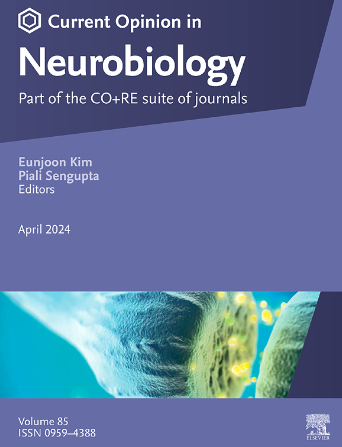Centrosomal and acentrosomal microtubule nucleation during neuronal development
IF 4.8
2区 医学
Q1 NEUROSCIENCES
引用次数: 0
Abstract
Neurons rely on the microtubule cytoskeleton to create and maintain their sophisticated cellular architectures. Advances in cryogenic electron microscopy, expansion microscopy, live imaging, and gene editing have enabled novel insights into mechanisms of centrosomal and acentrosomal microtubule nucleation, the key process generating new microtubules. This has paved the way for the functional dissection of distinct microtubule networks that regulate various processes during neuronal development, including neuronal delamination, polarization, migration, maturation, and synapse function. We review recent progress in understanding the molecular concepts of microtubule nucleation, how these concepts underlie neurodevelopmental processes, and pinpoint the open questions. Since microtubules play a pivotal role in axon regeneration within the adult central nervous system, understanding the processes of microtubule nucleation could inform strategies to enhance the regenerative capabilities of neurons in the future.
求助全文
约1分钟内获得全文
求助全文
来源期刊

Current Opinion in Neurobiology
医学-神经科学
CiteScore
11.10
自引率
1.80%
发文量
130
审稿时长
4-8 weeks
期刊介绍:
Current Opinion in Neurobiology publishes short annotated reviews by leading experts on recent developments in the field of neurobiology. These experts write short reviews describing recent discoveries in this field (in the past 2-5 years), as well as highlighting select individual papers of particular significance.
The journal is thus an important resource allowing researchers and educators to quickly gain an overview and rich understanding of complex and current issues in the field of Neurobiology. The journal takes a unique and valuable approach in focusing each special issue around a topic of scientific and/or societal interest, and then bringing together leading international experts studying that topic, embracing diverse methodologies and perspectives.
Journal Content: The journal consists of 6 issues per year, covering 8 recurring topics every other year in the following categories:
-Neurobiology of Disease-
Neurobiology of Behavior-
Cellular Neuroscience-
Systems Neuroscience-
Developmental Neuroscience-
Neurobiology of Learning and Plasticity-
Molecular Neuroscience-
Computational Neuroscience
 求助内容:
求助内容: 应助结果提醒方式:
应助结果提醒方式:


